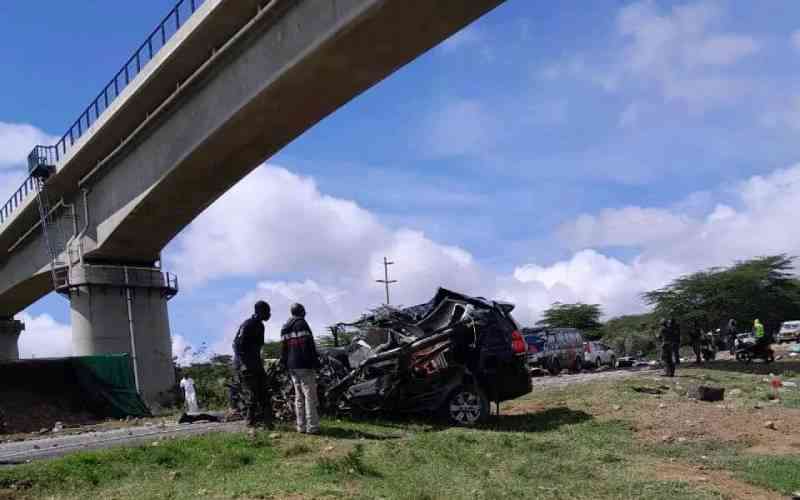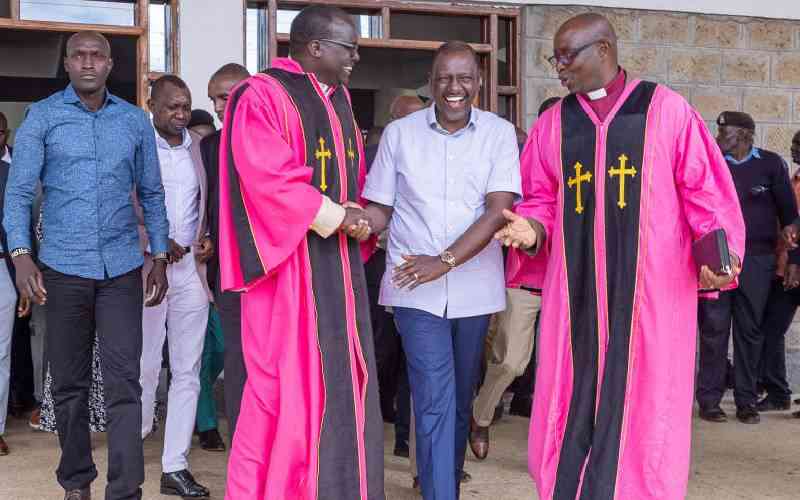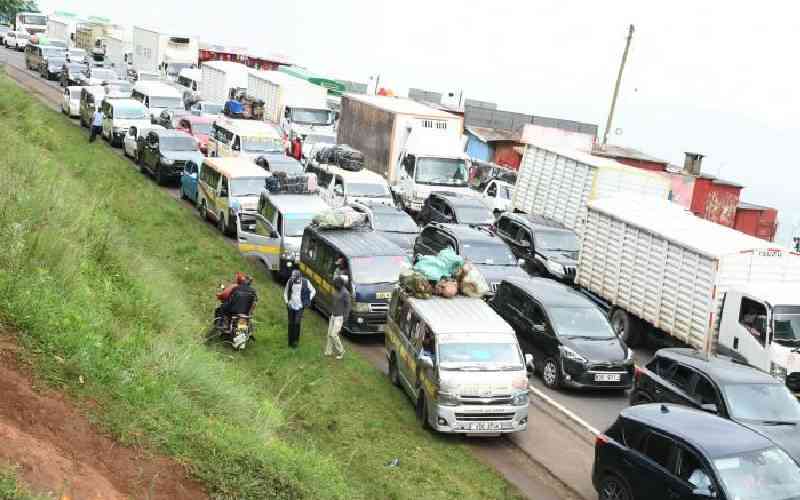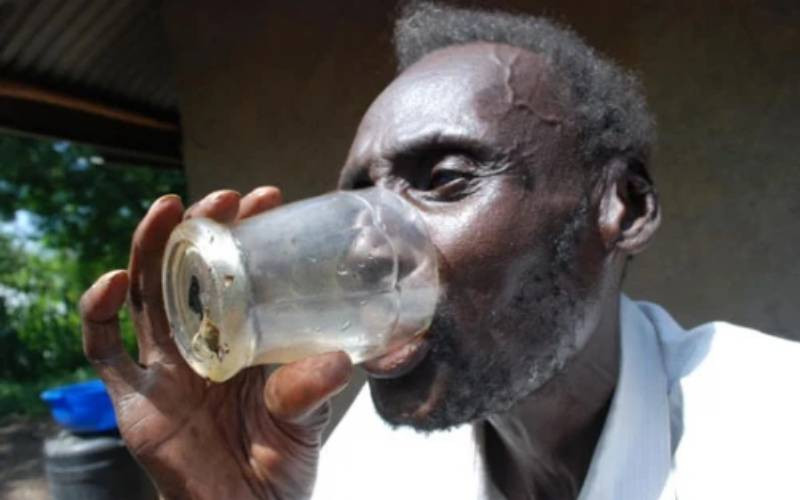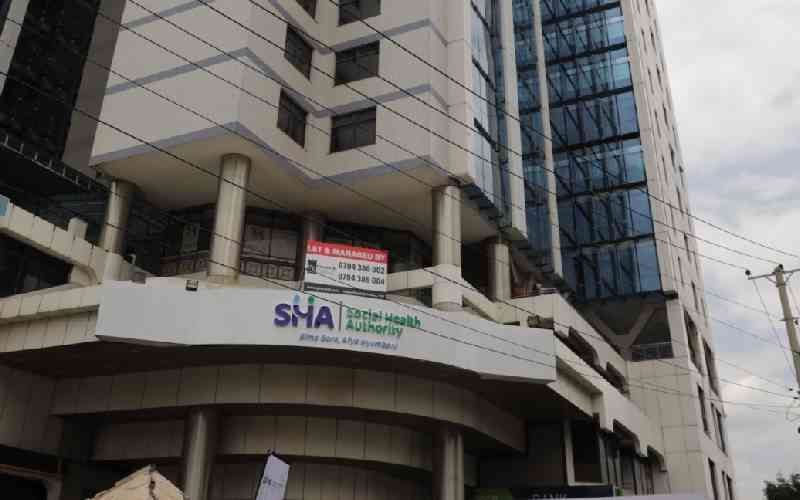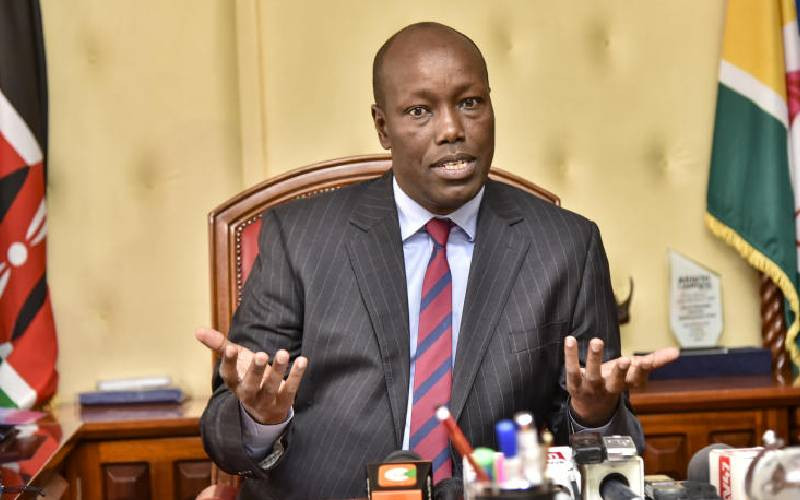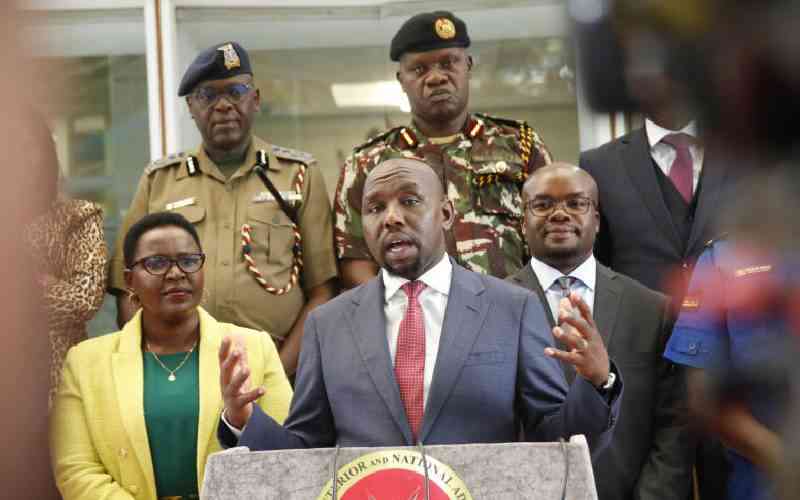
Soi Safari Lodge flooded after Lake Baringo swelled on July 21, 2020. [Kipsang Joseph, Standard]
A case of two communities in Baringo County seeking climate justice following displacement by floods could give Kenya and other developing countries a reason to compel rich nations to finance loss and damages caused by climate change.
Kenya is among the African delegation expected to push for the creation of loss and damage finance linked to climate change in the upcoming 27th Conference of Parties (COP 27) which will be held in Sharm el-Sheikh in Eqypt in November.
The first-of-a-kind case was presented by the 66 residents of Ng'arwa and Bartum locations who were displaced by floods in Lake Baringo. The communities are seeking to compel the government to compensate them for damages they incurred.
In the petition that might be among the first in the region for communities to take on the government's failure to help them mitigate and adapt to the impacts of climate change, the residents from Ilchamus and Tugen communities who have resided on the shores of Lake Baringo noted that they have suffered loss and damage.
"This petition has been provoked by several egregious constitutional violations directly linked to climate change impacts and the rising water levels in Lake Baringo," part of the petition read.
They blame the government for what they termed as a failure to adopt several adaptation strategies that could have mitigated their plight and protected their lives, health and properties. The government, they say, is to blame for its failure to establish early flood warning systems as well as failing to protect riparian areas along rivers, and building strategic dykes to drain flood water alongside other mitigation strategies.
- Misdiagnosis, climate change to blame for pathogens' resistance to drugs
- Scorching truth: How climate change aggravates brain diseases
- Africa pushes for climate justice at COP 29, seeks $1.3tr financing promise
- Trump's election victory raises concern among global climate leaders
Keep Reading
According to the petitioners' lawyer Robert Owino, cases of displacements in Lake Baringo did not result from normal rains but as a result of climate change. The case, he says, seeks climate justice for the communities who have not only borne the brunt of the impacts of climate change but are also continuing to feel the impacts.
"The fact that Kenya has adopted several national frameworks including the Climate Change Act of 2016 to stave off climate disaster risks, the government is obligated to help communities mitigate and adapt to climate change. The government has however failed in helping those affected," Owino said.
They argued that despite Kenya being a signatory to treaties including the UN Framework Convention on Climate Change 1992, the Kyoto Protocol 1997, the Paris Agreement 2015, and the African Charter on Human and People's Rights 1981 among others, it has failed to mainstream climate change responses. They also blamed the government for failing to build their resilience and adaptive capacity to the impacts of climate change.
While cases of communities seeking compensation resulting from damages and loss caused by climate change are starting to trickle in, it is expected that loss and damage will be one of the dominant themes in the upcoming Conference of Parties (CoP 27).
Loss and damage are the key components the African delegation, Kenya included, will negotiate at the COP27. Being a continent that least contributes to the impacts of climate change, experts say, Africa instead has suffered the most from the impacts.
According to Power Shift Africa director Mohamed Adow, addressing the climate crisis entails mitigation, adaptation, and addressing loss and damage.
"The emergence of loss and damage is primarily a result of the failure to mitigate and inadequate support for adaptation efforts. If you are a pastoralist in Northern Kenya and your livestock get decimated by devastating droughts, these are not things that can be adapted to. They are permanent losses for which you deserve to be compensated," Adow said.
He said that because of inaction by major polluters to mitigate their emissions decades ago, vulnerable countries ended up needing adaptation to help them adapt to climate change.
"But because adaptation finance has proved so inadequate many poor countries remain vulnerable to climate impacts they have not caused and climate change is robbing them of their lives and livelihoods," Adow added.
According to Owino, lobbying for the financing of loss and damage by developing countries is a step in the right direction given that there are many victims who require climate justice.
"The issue of loss and damage is a valid case. If the government had money from such funding, it would have been made easier but that does not mean the government is not mandated to compensate. Negotiating for finance on loss and damage is a good step by developing nations who are worse affected," Owino said.
 The Standard Group Plc is a multi-media organization with investments in media platforms spanning newspaper print
operations, television, radio broadcasting, digital and online services. The Standard Group is recognized as a
leading multi-media house in Kenya with a key influence in matters of national and international interest.
The Standard Group Plc is a multi-media organization with investments in media platforms spanning newspaper print
operations, television, radio broadcasting, digital and online services. The Standard Group is recognized as a
leading multi-media house in Kenya with a key influence in matters of national and international interest.

